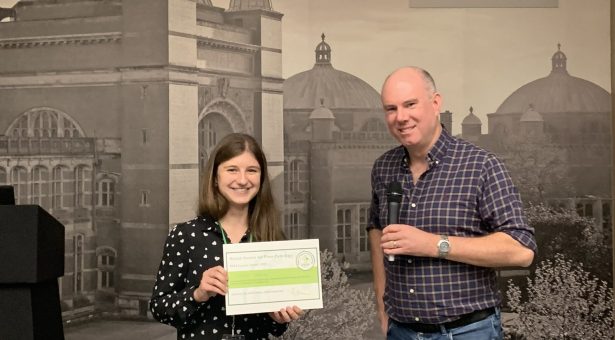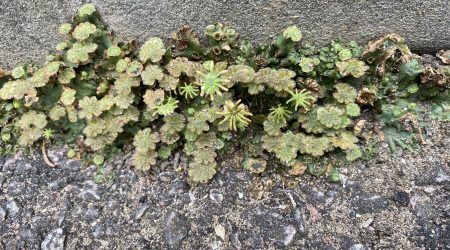Plant Pathology 2023: Two prize winners from the John Innes Centre

This year, the annual meeting of the British Society for Plant Pathology (BSPP), Plant Pathology 2023, took place from Wednesday 8th to Friday 10th September. This year, we are delighted that two John Innes Centre researchers scooped some of the top awards in plant pathology at this conference, the RKS Wood and PH Gregory Prizes.
Held at the Edgbaston Park Hotel & Conference Centre, Plant Pathology 2023 (known as PPath23) featured open sessions based on submitted abstracts, award presentations and additional sessions organised in collaboration with the Association of Applied Biologists.
One of the awards presented each year is the prestigious RKS Wood Prize, which was awarded to Professor Diane Saunders for her outstanding contribution to the field of plant pathogen diagnostics and crop protection. The prize celebrates excellent science in the study of plant disease biology and its application in the protection of plants against pathogens.
Diane was nominated in part for her creation of MARPLE (the Mobile and Real-time PLant disease) Diagnostics and the Rosalind Franklin Women in Wheat Champions programme, a mentoring scheme supporting early-career women scientists.
The second success at this meeting was the esteemed PH Gregory Prize, which is awarded for the presentation of an oral paper each year. This prize was awarded to Emma Turley a postgraduate researcher co-supervised by Christine Faulkner and Mark Banfield here at the John Innes Centre.
Emma, a second-year PhD student on the John Innes Foundation rotation programme, was awarded the prize for the best oral presentation at the conference. Her talk ‘Battling for the symplast: Why are plasmodesmal HMA proteins targeted by fungal pathogens?’ presented results from her PhD research thus far.
Giving more insight on the topic she chose to present, Emma says: “Within a plant, cells are directly connected via microscopic intercellular channels called plasmodesmata, establishing a continuous symplast throughout which molecules can move. My aim is to understand how a fungal pathogen called Colletotrichum higginsianum targets and manipulates plasmodesmata within its host, Arabidopsis, and how the plant might defend itself from such manipulation.
“Specifically, I am studying a putative secreted effector protein from C. higginsianum, which localises to plasmodesmata and targets a host protein with two heavy metal associated (HMA) domains. HMA domain-containing proteins have been identified as targets of pathogen effectors in diverse pathosystems, and I hope to better understand the functional relevance of these protein-protein interactions in an infection context.”
Emma’s short talk was selected as the best presentation at PPath23.
“It was challenging to condense the relevant background, results and remaining questions from my research into just 7 minutes,” comments Emma. “I’m grateful to my colleagues for their advice on how to keep my presentation concise. I would also like to thank my fellow JIC- and TSL-based conference attendees for their belief and moral support on the day.
“Overall, I felt incredibly lucky to be given the opportunity to practise my presentation skills, discuss my research with an expert audience, and learn from all the fantastic talks at Plant Pathology 2023.”
We would like to congratulate Emma and Diane on their awards, which brings welcome recognition for their research and academic endeavours.



